CALL TODAY 646-846-1136 | EMAIL
Surgical Experts Dedicated to Improving Lives
At Lenox Hill Minimally Invasive Surgery PLLC, Dr. Valery Dronsky and his staff of medical professionals provide compassionate care with the highest ethical & professional standards. In our state of the art facility, we offer surgical services using only the most cutting edge and current procedures and treatments. We specialize in general surgery, including extensive experience in performing hernia repair surgery. Our expertise is in minimally invasive surgery and robotic surgery. Minimally invasive and robotic surgery often allow patients to experience easier recovery than traditional open surgery. They also allow for more precise and less traumatic surgery. When robotic and minimally invasive surgery is not an option, we are also skilled and experienced in traditional open surgical procedures.
Dr. Dronsky is an experienced and highly skilled surgeon having undergone extensive training in school, residency and fellowships. He practices medicine with ethical behavior, compassion and superb bedside manner. In the operating room he exhibits precision mechanical abilities, analytical thinking and the ability to visualize tissue in three dimensions. These innate and learned skills allow Dr. Dronsky to be one of the most dexterous and skilled professionals in New York City and the Country.
Call us: 646-846-1136
PATIENT TESTIMONIALS
Recent Awards
We are honored and deeply appreciative to have consistently received prestigious awards and recognition year after year, establishing us as one of New York’s foremost hospitals for a wide range of general surgeries, safety measures, specialized procedures, and overall excellence in healthcare. At Lenox Hill Minimally Invasive Surgery, our unwavering commitment lies in delivering exceptional care and unwavering support to our patients, guaranteeing their safety and successful recovery throughout their entire surgical experience.
Hospital Quality Awards
 America’s 50 Best Hospitals Award™ (2023, 2022)
America’s 50 Best Hospitals Award™ (2023, 2022)
Top 1% in the nation for providing the highest clinical quality year over year.

America’s 100 Best Hospitals Award™ (2021)
Top 2% in the nation for consistently delivering clinical quality year over year.

America’s 250 Best Hospitals Award™ (2023, 2022, 2021)
Top 5% in the nation for consistently delivering clinical quality.

Patient Safety Excellence Award™ (2023, 2022)
Top in the nation for providing excellence in patient safety by preventing infections, medical errors, and other preventable complications.
Specialty Clinical Quality Awards

America’s 100 Best Hospitals for Cardiac Care Award™ (2023, 2022, 2021, 2020, 2019)
Superior clinical outcomes in heart bypass surgery, coronary interventional procedures, heart attack treatment, heart failure treatment, and heart valve surgery.

America’s 100 Best Hospitals for Coronary Intervention Award™ (2023, 2022, 2021, 2020, 2019)
Superior clinical outcomes in coronary intervention procedures (angioplasty with stent).

America’s 100 Best Hospitals for Prostate Surgery Award™ (2023, 2022, 2021)
Superior clinical outcomes in prostate removal surgery and transurethral resection of the prostate.
Click to see all of our Healthgrades best doctors awards
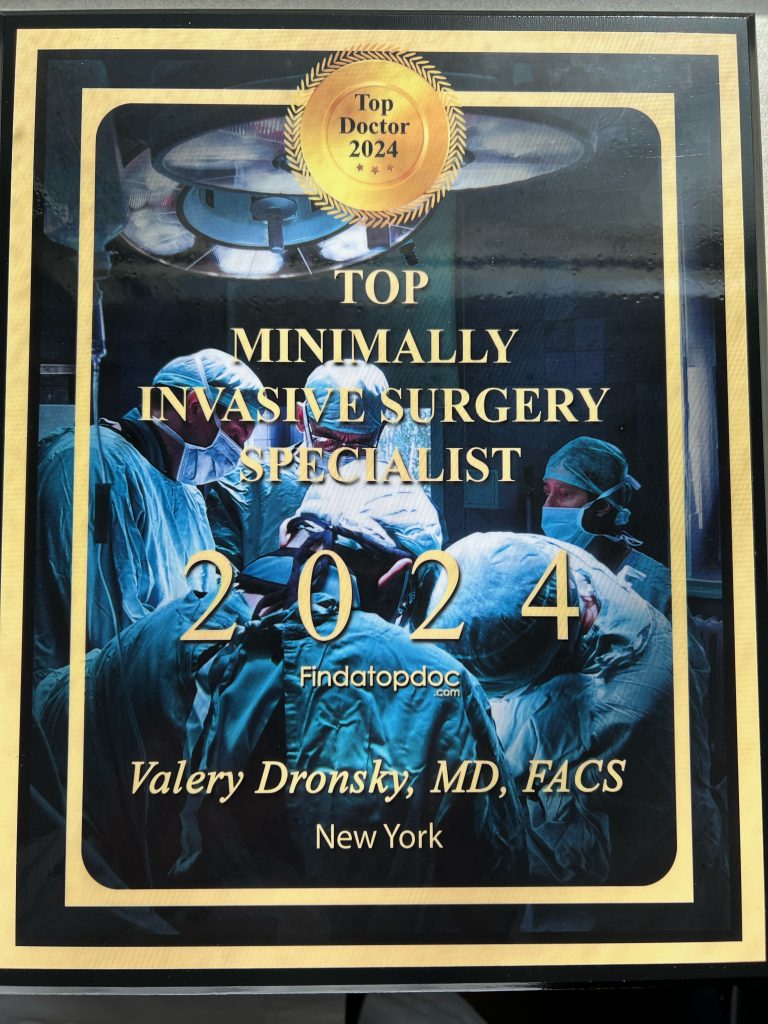
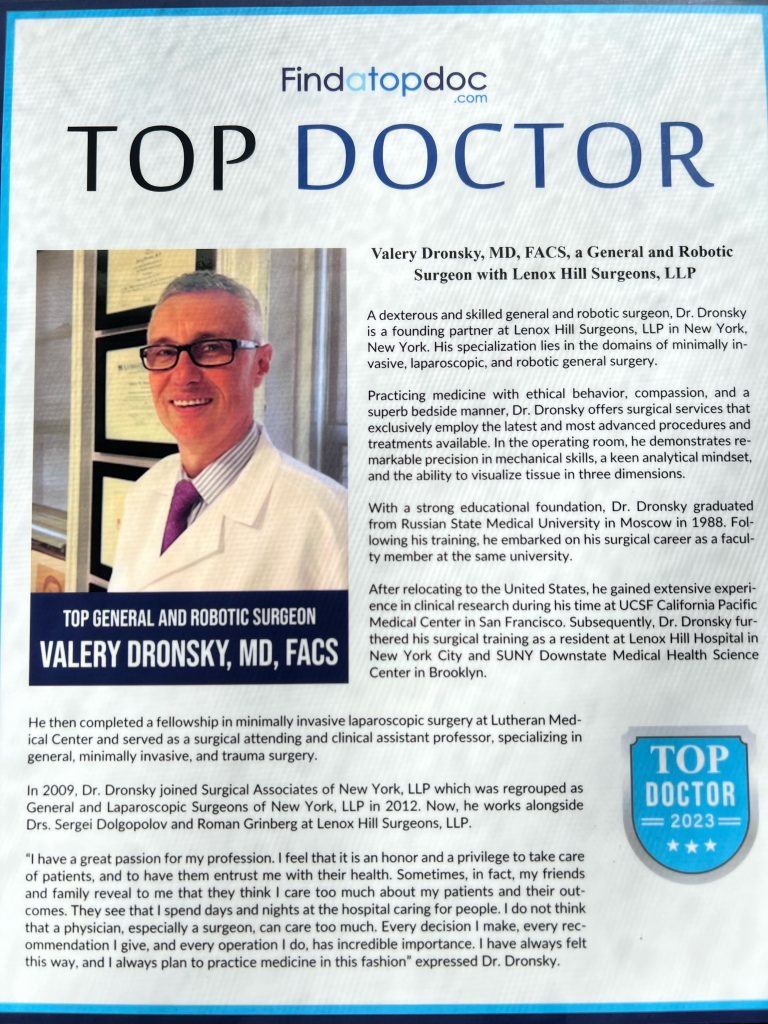


Visit our main website at www.LenoxHillMinimallyInvasiveSurgery.com
Blog Posts are Below:
Category Archives: General Surgery
The Role of General Surgery in Cancer Treatment: Latest Approaches
General surgery plays a vital role in the treatment of various types of cancer, often serving as the primary or first-line treatment for many solid tumors. With the rapid advancements in surgical techniques and technology, the field of general surgery has become increasingly effective in addressing cancerous growths, minimizing patient discomfort, and enhancing recovery. For those facing a cancer diagnosis, understanding the role of general surgery and the latest approaches available can empower patients and their families to make informed decisions.
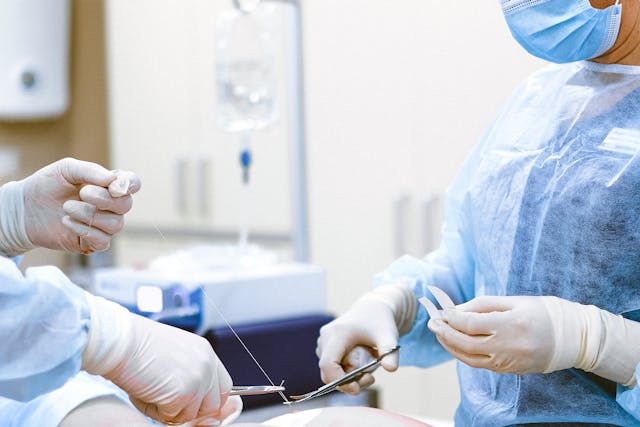
This guide will explore how general surgery is used in cancer treatment, the latest surgical approaches, and the benefits of minimally invasive techniques.
Understanding the Role of General Surgery in Cancer Treatment
Surgery is often one of the primary treatments for cancer, particularly when the cancer is localized and has not spread to other parts of the body. Surgery can serve several purposes in the treatment of cancer:
- Curative Surgery: When the entire tumor can be removed, surgery may offer a potential cure for certain cancers. Curative surgery is most effective when cancer is detected early and remains localized.
- Debulking Surgery: In cases where removing the entire tumor is not possible or safe, debulking surgery may be performed to reduce the size of the tumor. This can help improve the effectiveness of other treatments, such as chemotherapy or radiation.
- Palliative Surgery: For advanced cancers, surgery may be used to relieve symptoms and improve the quality of life, even if the cancer itself cannot be cured.
- Preventive Surgery: For individuals at high risk of certain cancers, preventive (or prophylactic) surgery may be performed to remove tissue that is likely to become cancerous in the future.
The surgical approach depends on the type, stage, and location of cancer, as well as the overall health of the patient.
Latest Surgical Approaches in Cancer Treatment
With advances in technology and surgical techniques, the treatment of cancer has evolved significantly. Here are some of the latest and most effective approaches in surgical oncology:
1. Minimally Invasive Surgery (MIS)
Minimally invasive surgery, including laparoscopy and robotic-assisted surgery, has revolutionized the field of cancer surgery. Using small incisions, high-definition cameras, and precise instruments, surgeons can perform complex procedures with greater accuracy and less trauma to surrounding tissues.
- Laparoscopic Surgery: This technique uses a laparoscope, a thin tube with a camera, inserted through a small incision. The surgeon views a magnified image on a screen and operates through additional small incisions. Laparoscopic surgery is commonly used for cancers of the colon, stomach, liver, and pancreas.
- Robotic-Assisted Surgery: With robotic-assisted systems like the da Vinci Surgical System, surgeons can operate with enhanced dexterity and control. This is particularly beneficial for cancers in hard-to-reach areas, such as prostate or rectal cancer.
Benefits of Minimally Invasive Surgery:
- Smaller incisions and minimal scarring
- Reduced blood loss
- Shorter hospital stays
- Faster recovery times
- Lower risk of infection and complications
2. Sentinel Lymph Node Biopsy
In cancers such as breast cancer and melanoma, determining whether cancer has spread to the lymph nodes is essential for staging and treatment planning. A sentinel lymph node biopsy is a minimally invasive procedure that identifies the first lymph node to which cancer cells are likely to spread. By targeting only the sentinel node, this approach reduces the need for extensive lymph node removal, decreasing the risk of complications like lymphedema.
3. Radiofrequency Ablation (RFA) and Microwave Ablation (MWA)
For small tumors, especially in the liver, kidneys, and lungs, radiofrequency ablation (RFA) and microwave ablation (MWA) are effective alternatives to traditional surgery. These treatments use heat generated by radio waves or microwaves to destroy cancer cells. RFA and MWA are minimally invasive and can be performed using image guidance without large incisions.
4. Cryosurgery
Cryosurgery, also known as cryotherapy, uses extreme cold to destroy cancerous tissue. Liquid nitrogen or argon gas is applied directly to the tumor, freezing and killing the cancer cells. This technique is commonly used for prostate and skin cancers and offers a minimally invasive approach with minimal damage to surrounding tissue.
5. Hyperthermic Intraperitoneal Chemotherapy (HIPEC)
HIPEC is a specialized approach used in cases of abdominal cancer, such as colorectal or ovarian cancer, that has spread to the peritoneal cavity. During surgery, after removing visible tumors, heated chemotherapy is applied directly to the abdominal cavity. The heat enhances the effectiveness of the chemotherapy, and by applying it locally, higher doses can be used without systemic side effects. HIPEC is often referred to as “hot chemo” and is gaining popularity for its effectiveness in treating advanced abdominal cancers.
6. Endoscopic Surgery
Endoscopic surgery uses a flexible tube with a camera (endoscope) inserted through natural openings like the mouth or rectum to access the tumor. It’s especially useful for early-stage cancers of the digestive tract, such as esophageal or gastric cancer. Endoscopic procedures like endoscopic mucosal resection (EMR) and endoscopic submucosal dissection (ESD) allow for precise removal of tumors without the need for external incisions.
7. Oncoplastic Surgery
For breast cancer, oncoplastic surgery combines tumor removal with reconstructive techniques to preserve or restore the breast’s appearance. This approach allows for wider tissue removal, reducing the risk of recurrence while maintaining the cosmetic outcome. It is especially beneficial for patients who wish to maintain their natural breast contour after cancer surgery.
The Benefits of Modern Surgical Techniques for Cancer Patients
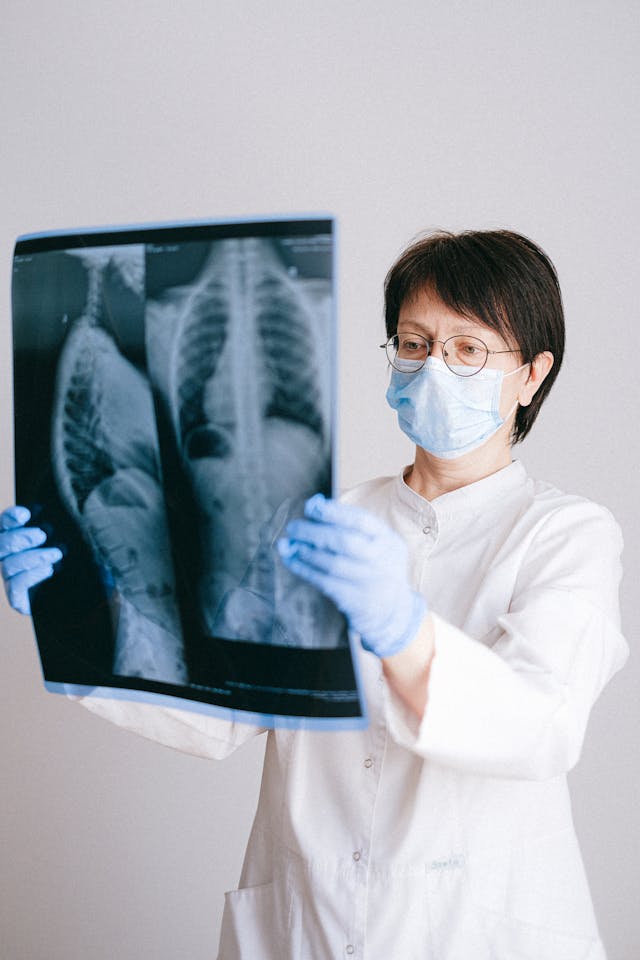 Advances in general surgery for cancer treatment have introduced significant benefits that improve outcomes, reduce complications, and enhance the quality of life for patients:
Advances in general surgery for cancer treatment have introduced significant benefits that improve outcomes, reduce complications, and enhance the quality of life for patients:
- Reduced Pain and Trauma: Minimally invasive techniques cause less damage to surrounding tissues, leading to reduced pain and faster recovery.
- Improved Precision: Robotic and laparoscopic approaches allow surgeons to operate with precision, minimizing the risk of damaging healthy tissue.
- Shorter Recovery Times: With smaller incisions and less blood loss, patients often recover faster and spend less time in the hospital.
- Lower Risk of Infection: Minimally invasive techniques are associated with a lower risk of post-operative infections, promoting better healing.
The Role of Surgery in Multidisciplinary Cancer Treatment
While surgery is often essential for cancer treatment, it is rarely the only treatment. Cancer care is highly multidisciplinary, often involving combinations of surgery, chemotherapy, radiation therapy, immunotherapy, and targeted therapies. A multidisciplinary team of specialists—including surgical oncologists, medical oncologists, radiologists, and pathologists—work together to create a personalized treatment plan for each patient.
For some cancers, surgery may be the first step, followed by adjuvant (post-surgical) chemotherapy or radiation therapy to target any remaining cancer cells. In other cases, neoadjuvant (pre-surgical) therapies may be used to shrink the tumor, making it easier to remove surgically. The collaboration of various specialists ensures a comprehensive approach to treatment, maximizing the chances of a successful outcome.
Recovery and Follow-Up After Cancer Surgery
Recovery from cancer surgery varies depending on the type and complexity of the procedure. Minimally invasive surgeries typically offer faster recovery times, with patients able to resume normal activities within weeks. For more extensive surgeries, such as esophagectomy or liver resection, the recovery period may be longer, and patients may require additional support in the form of physical therapy and dietary guidance.
Post-surgery, regular follow-up appointments are crucial for monitoring recovery, detecting potential recurrences, and managing any side effects. Cancer patients are often placed on a follow-up plan involving periodic imaging studies, blood tests, and physical exams to ensure long-term health.
General Surgery in Cancer Treatment Conclusion: Advancing Cancer Care with Surgical Innovation
The field of general surgery continues to evolve, with new technologies and techniques improving the safety, effectiveness, and recovery times for cancer surgeries. From minimally invasive techniques and robotic-assisted surgery to innovative approaches like HIPEC and cryosurgery, patients now have more options than ever for effective, tailored cancer treatment.
If you or a loved one has been diagnosed with cancer and is considering surgery, consulting with a team of experienced surgeons specializing in cancer treatment can make all the difference in the journey to recovery. Contact Lenox Hill Minimally Invasive Surgery today to learn more about the latest surgical advancements and how our skilled surgeons can help in the fight against cancer.
Contact Information
LENOX HILL MINIMALLY INVASIVE SURGERY
117 E 77th Street
New York, NY 10075
646-846-1136
admin@lenoxmis.com
Visit our website for more information:
https://lenoxhillminimallyinvasivesurgery.com/
Top 10 Signs You Might Need Surgery
 What are the top 10 signs you might need surgery? Recognizing the signs that you might need surgery is crucial for timely intervention and effective treatment. Here are the top things to watch for.
What are the top 10 signs you might need surgery? Recognizing the signs that you might need surgery is crucial for timely intervention and effective treatment. Here are the top things to watch for.
Top 10 Signs You Might Need Surgery
1. Chronic Pain
Persistent, severe pain that doesn’t improve with medication or other treatments may indicate a need for surgery. Conditions such as arthritis, herniated discs, and chronic back pain often require surgical intervention when conservative treatments fail to provide relief.
2. Recurring Infections
Frequent infections, especially in the same area, can signal an underlying issue that might require surgical intervention. For example, recurring urinary tract infections could indicate a structural problem in the urinary system, while chronic sinus infections might necessitate sinus surgery.
3. Difficulty Breathing
Breathing problems that are not resolved with medical treatment could necessitate surgery to address issues like blocked airways, lung conditions, or heart problems. Procedures such as septoplasty for a deviated septum or surgery for obstructive sleep apnea can significantly improve breathing.
4. Digestive Problems
Chronic digestive issues such as severe acid reflux, gallstones, or bowel obstructions often need surgical solutions. For instance, persistent gastroesophageal reflux disease (GERD) may require a procedure like fundoplication, while gallstones might necessitate cholecystectomy.
5. Unexplained Weight Loss
Significant, unexplained weight loss can be a symptom of serious conditions that may require surgical exploration and treatment. It could indicate cancers, endocrine disorders, or gastrointestinal diseases that need surgical intervention for diagnosis or treatment.
6. Blood in Stool or Urine
The presence of blood in your stool or urine could indicate a serious condition like cancer, kidney stones, or ulcers, requiring surgical intervention. Colonoscopy for polyps or tumors and cystoscopy for bladder issues are common procedures in such cases.
7. Persistent Fever
A fever that doesn’t subside with medication could signal an infection or other condition needing surgical treatment. Persistent fever might indicate an abscess, appendicitis, or other infections that require drainage or removal through surgery.
8. Non-Healing Wounds
Wounds that do not heal properly might need surgical debridement or other interventions to prevent infection and promote healing. Conditions such as diabetic ulcers or pressure sores often require surgical attention to ensure proper recovery.
9. Lumps or Growths
Unexplained lumps or growths, especially if they are growing or changing, should be evaluated by a surgeon for potential removal. These could be benign tumors, cysts, or malignant growths that need to be excised to prevent further complications.
10. Traumatic Injuries
Severe injuries from accidents or falls often require surgical repair to restore function and prevent complications. Broken bones, internal bleeding, and damaged organs are some of the conditions that might necessitate immediate surgical intervention.
Importance of Timely Surgical Intervention
Timely surgical intervention is essential for preventing complications and improving outcomes. Delaying surgery can lead to the worsening of the condition and may reduce the effectiveness of the treatment. It is important to consult with an experienced general or specialty surgeon as soon as you notice any of these signs to determine the best course of action.
Top 10 Signs You Might Need Surgery: Conclusion
Recognizing these signs can help you seek timely surgical intervention, leading to better health outcomes. If you are experiencing any of these symptoms, consult with a healthcare professional for a proper diagnosis and treatment plan.
If you need expert surgical care or have questions about potential surgery, contact the specialists at Lenox Hill Minimally Invasive Surgery. Our experienced team is dedicated to providing the highest quality care.
LENOX HILL MINIMALLY INVASIVE SURGERY
117 E 77th Street
Suite 1A
New York, NY 10075
646-846-1136
admin@lenoxmis.com
https://lenoxhillminimallyinvasivesurgery.com/
Understanding the Role of a General Surgeon: What You Need to Know
Understanding the role of a general surgeon is crucial for anyone facing surgery or seeking to understand the broad field of general surgery. General surgeons are highly trained medical professionals who perform a variety of surgical procedures, often involving critical and life-saving operations.
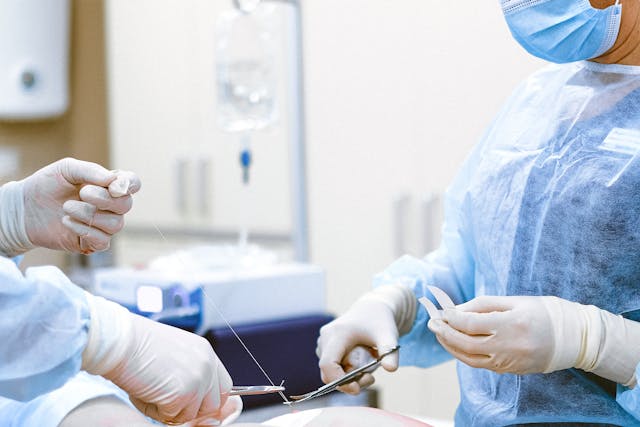
What Does a General Surgeon Do?
General surgeons are skilled in a wide range of surgical procedures. They diagnose and treat various conditions affecting almost any area of the body. These include surgeries related to the digestive tract, abdomen, breast, skin, and soft tissues. General surgeons also manage trauma, surgical emergencies, and care for critically ill patients.
Common Procedures Performed by General Surgeons
Some common procedures that general surgeons perform include appendectomies, hernia repairs, gallbladder removals, and colon surgeries. They also handle more complex surgeries such as cancer resections and bariatric surgery for weight loss. General surgeons are trained to handle both routine and emergency procedures with precision and expertise.
The Importance of Preoperative and Postoperative Care
General surgeons are involved in both preoperative and postoperative care. Before surgery, they conduct thorough evaluations, including physical exams and diagnostic tests, to determine the best course of action. After surgery, they monitor the patient’s recovery, manage any complications, and ensure proper wound care and pain management.
Trauma and Emergency Surgery
One of the critical roles of a general surgeon is performing trauma and emergency surgery. General surgeons are often on the front lines in emergency rooms, handling cases such as traumatic injuries, perforated ulcers, and acute appendicitis. Their ability to perform under pressure and make quick, informed decisions can be life-saving.
Collaboration with Other Specialists
General surgeons frequently collaborate with other medical specialists to provide comprehensive care. They may work alongside oncologists, gastroenterologists, and radiologists to develop and execute treatment plans for complex conditions. This multidisciplinary approach ensures that patients receive the most effective and coordinated care possible.
Advancements in General Surgery
The field of general surgery is continually evolving with advancements in technology and surgical techniques. Minimally invasive surgery, including laparoscopic and robotic surgery, has become more common. These techniques offer benefits such as smaller incisions, reduced pain, and quicker recovery times. General surgeons stay updated with the latest advancements to provide the best care for their patients.
Understanding the Role of a General Surgeon: Conclusion:
General surgeons play a vital role in the medical field, performing a wide range of procedures that are essential for diagnosing and treating various conditions. Their expertise in preoperative and postoperative care, trauma surgery, and collaboration with other specialists makes them indispensable in the healthcare system.
If you need expert surgical care or have questions about a surgical procedure, contact the specialists at Lenox Hill Minimally Invasive Surgery. Our experienced team is dedicated to providing the highest quality care.
LENOX HILL MINIMALLY INVASIVE SURGERY
117 E 77th Street
Suite 1A
New York, NY 10075
646-846-1136
admin@lenoxmis.com
Preparing for General Surgery: A Step-by-Step Guide
In this step-by-step guide, we will walk you through the key aspects of preparing for general surgery to help you feel confident and informed. Facing the prospect of general surgery can be daunting, but proper preparation can help alleviate anxiety and ensure a smoother recovery process. Whether you’re scheduled for a routine procedure or a more complex surgical intervention, being well-prepared is essential. At Lenox Hill Minimally Invasive Surgery, a trusted general surgery practice in New York City, we believe in providing comprehensive care to our patients.
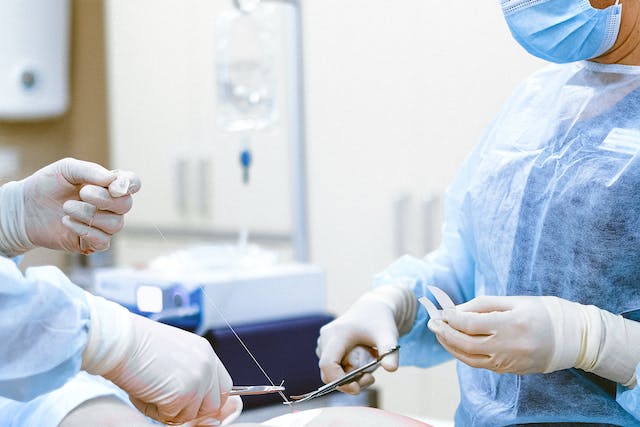
Preparing for General Surgery: A Step-by-Step Guide
Step 1: Consultation and Preoperative Evaluation
The first step in preparing for general surgery is scheduling a consultation with your surgeon. During this appointment, your surgeon will review your medical history, perform a physical examination, and discuss the details of your upcoming surgery. This is also an opportunity to address any questions or concerns you may have. Your surgeon may order preoperative tests, such as bloodwork or imaging, to ensure you are in optimal condition for surgery.
Step 2: Preoperative Instructions
Your surgeon and their team will provide you with specific preoperative instructions tailored to your procedure. These instructions may include dietary restrictions, medication guidelines, and guidance on preparing your body for surgery. It is crucial to follow these instructions carefully to minimize potential complications and ensure the best possible outcome.
Step 3: Lifestyle Adjustments
Depending on your procedure, you may need to make certain lifestyle adjustments in the days or weeks leading up to surgery. This may involve quitting smoking, avoiding certain medications or supplements that can interfere with the surgery, and adjusting your diet to promote healing. Your surgeon will provide guidance on these adjustments based on your individual needs.
Step 4: Preparing Your Support System
Having a strong support system is invaluable during the surgical process. Arrange for someone to accompany you to the hospital on the day of surgery and stay with you during the initial recovery period. This person can provide emotional support, help with practical matters, and assist you in following postoperative instructions.
Step 5: Mental and Emotional Preparation
Surgery can be emotionally challenging, so it’s important to take care of your mental well-being. Engage in relaxation techniques, such as deep breathing exercises or meditation, to help manage stress and anxiety. Stay informed about your procedure but avoid excessive online research that may increase worry. Trust in the expertise of your surgeon and the healthcare team supporting you.
Step 6: Preparing for Hospital Stay
If your surgery requires an overnight hospital stay, pack a small bag with essential items, such as comfortable clothing, toiletries, and any necessary medications. Follow fasting instructions provided by your surgeon to ensure your stomach is empty before the procedure. Arrive at the hospital on time, and be prepared for necessary paperwork and preoperative preparations.
Step 7: Postoperative Recovery Plan
Before your surgery, discuss the postoperative recovery plan with your surgeon. Understand what to expect in terms of pain management, wound care, dietary guidelines, and activity restrictions. Arrange for follow-up appointments and ensure you have the necessary support and resources in place for a smooth recovery at home.
Expert General Surgical Services at Lenox Hill Minimally Invasive Surgery
At Lenox Hill Minimally Invasive Surgery, we are dedicated to providing exceptional surgical care and support throughout your surgical journey. Our team of experienced general surgeons utilizes advanced techniques and compassionate care to ensure optimal outcomes and patient satisfaction.
Contact us today to schedule a consultation and benefit from the expertise of our renowned surgeons.
Contact Information:
LENOX HILL MINIMALLY INVASIVE SURGERY
117 E 77th Street
Suite 1A
New York, NY 10075
646-846-1136
admin@lenoxmis.com
https://lenoxhillminimallyinvasivesurgery.com/
Common General Surgeries and Their Importance for Patients
When it comes to addressing various health conditions and improving quality of life, general surgery plays a crucial role. General surgeons are skilled professionals who specialize in a wide range of surgical procedures. At Lenox Hill Minimally Invasive Surgery, a renowned general surgery practice in New York City, our team of expert surgeons is dedicated to providing exceptional care and expertise. In this informative article, we will explore some common general surgeries and their importance in helping patients regain their health and well-being.
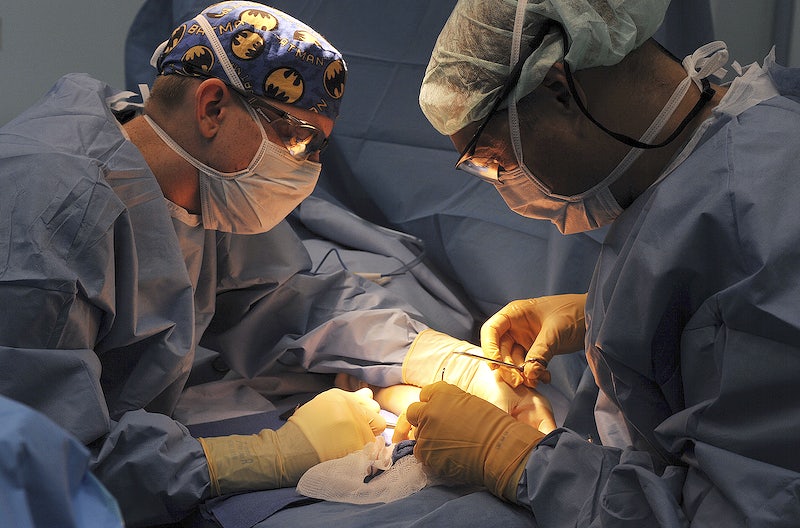
Hernia Repair: Restoring Comfort and Functionality
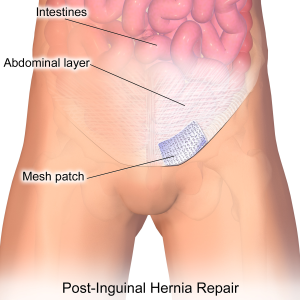 Hernias occur when an organ or tissue protrudes through a weakened area in the surrounding muscle or connective tissue. Hernia repair is a common general surgery procedure that aims to correct this condition. Whether it’s an inguinal hernia in the groin area or an umbilical hernia near the navel, hernia repair surgery helps restore comfort and functionality to patients. By repairing the weakened area and reinforcing it with sutures or a mesh patch, general surgeons provide a long-term solution for hernia patients.
Hernias occur when an organ or tissue protrudes through a weakened area in the surrounding muscle or connective tissue. Hernia repair is a common general surgery procedure that aims to correct this condition. Whether it’s an inguinal hernia in the groin area or an umbilical hernia near the navel, hernia repair surgery helps restore comfort and functionality to patients. By repairing the weakened area and reinforcing it with sutures or a mesh patch, general surgeons provide a long-term solution for hernia patients.
Appendix Surgery: Preventing Complications
Appendicitis is a condition characterized by inflammation of the appendix. If left untreated, a ruptured appendix can lead to severe complications and even be life-threatening. Appendix surgery, also known as an appendectomy, is a common surgical intervention that involves the removal of the inflamed appendix. General surgeons perform this procedure promptly to prevent the risk of complications and ensure a complete recovery for patients.
Colon Surgery: Treating Colon Conditions
Colon surgery addresses various conditions affecting the large intestine, such as colon cancer, diverticulitis, and inflammatory bowel disease. General surgeons specializing in colon surgery utilize advanced techniques, such as laparoscopic or robotic-assisted surgery, to remove diseased portions of the colon and restore normal bowel function. Early detection and timely intervention through colon surgery are essential in improving patient outcomes and ensuring long-term well-being.
Gallbladder Surgery: Alleviating Gallbladder Disorders
Gallbladder surgery, known as cholecystectomy, is performed to treat gallbladder-related conditions, such as gallstones or inflammation. General surgeons employ both traditional open surgery and minimally invasive laparoscopic techniques to remove the gallbladder. Gallbladder surgery not only alleviates pain and discomfort but also prevents the recurrence of gallstones and potential complications, allowing patients to resume their normal lives.
Thyroid Surgery: Managing Thyroid Disorders
Thyroid surgery is performed to address thyroid disorders, such as thyroid nodules, goiters, or thyroid cancer. General surgeons skilled in thyroid surgery aim to remove all or part of the thyroid gland, depending on the specific condition. By managing thyroid disorders through surgery, general surgeons help restore hormonal balance and prevent the progression of thyroid-related complications, ensuring patients’ overall well-being.
Common General Surgeries: Receive Expert General Surgical Services at Lenox Hill Minimally Invasive Surgery in New York
At Lenox Hill Minimally Invasive Surgery, we understand the importance of common general surgeries in addressing various health conditions. Our team of experienced general surgeons are committed to delivering exceptional surgical care, utilizing advanced techniques, and prioritizing patient well-being. If you require any general surgical services, trust our expertise and experience for outstanding outcomes.
Contact us today to schedule a consultation and benefit from the expertise of our renowned surgeons:
Contact Information:
LENOX HILL MINIMALLY INVASIVE SURGERY
117 E 77th Street
Suite 1A
New York, NY 10075
646-846-1136
admin@lenoxmis.com
Visit our website for more information: https://lenoxhillminimallyinvasivesurgery.com/
Guide to General Surgery in Manhattan: What You Need to Know
Guide to General Surgeries in NYC: Restoring Health through Surgical Interventions
If you’re considering general surgery in Manhattan, it’s essential to be well-informed about the various procedures available, their benefits, and what to expect throughout the process. At Lenox Hill Minimally Invasive Surgery, a leading general surgery practice in New York City, we understand the importance of providing comprehensive information to help you make informed decisions about your healthcare. In this guide, we’ll walk you through the essential aspects of general surgeries, helping you understand the common procedures, their significance in addressing specific conditions, and what you can expect during the surgical process.
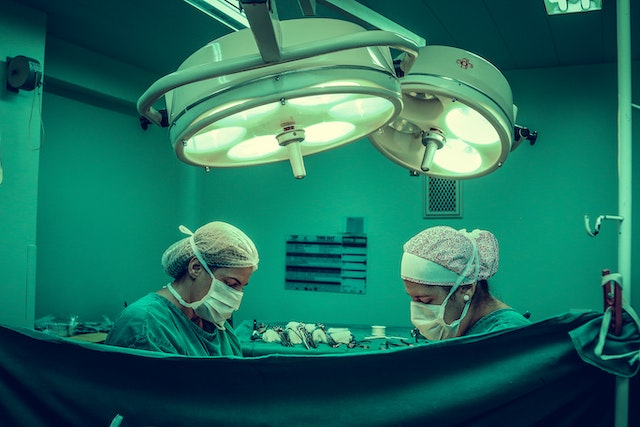
Hernia Repair: Types, Symptoms, and Treatment Options
One common general surgery procedure is hernia repair. Hernias occur when an organ or tissue pushes through a weak spot in the surrounding muscle or connective tissue. They can cause discomfort, pain, and potential complications if left untreated. Skilled surgeons employ various hernia repair techniques, such as laparoscopic or robotic-assisted approaches, tailored to your specific condition. Understanding the different types of hernias, their symptoms, and available treatment options can empower you to seek timely medical intervention.
Appendix Surgery: Understanding Appendicitis and Surgical Interventions
Appendicitis is another prevalent condition that often requires surgery. It occurs when the appendix becomes inflamed, leading to severe abdominal pain and other symptoms. If left untreated, it can result in a ruptured appendix, which is a medical emergency. Prompt surgical intervention is crucial to alleviate your pain and prevent further complications. Learning about the causes, symptoms, and surgical approaches for appendicitis can help you recognize the signs and seek appropriate medical care.
Colon Surgery: Exploring Procedures for Colon Conditions
Colon surgery is performed to address various conditions affecting the large intestine, including colon cancer, diverticulitis, and inflammatory bowel disease. Skilled surgeons utilize advanced techniques, such as minimally invasive laparoscopic surgery, to remove diseased portions of the colon and restore normal bowel function. Understanding the different colon conditions, their implications, and the available surgical procedures can help you navigate your treatment journey with confidence.
Gallbladder Surgery: Common Disorders and Surgical Solutions
Gallbladder surgery, often known as cholecystectomy, is performed to treat gallbladder-related disorders, such as gallstones or inflammation. Skilled surgeons are well-versed in laparoscopic gallbladder removal, a minimally invasive approach that offers smaller incisions, reduced scarring, and faster recovery compared to traditional open surgery. Understanding the common gallbladder disorders, their symptoms, and the surgical solutions available can empower you to make informed decisions about your health.
Adrenal Gland Disorders: Surgical Approaches and Treatment Considerations
When adrenal gland disorders, such as tumors or hormone imbalances, require surgical intervention, experienced surgeons employ advanced techniques to ensure precise removal of tumors and effective management of hormone-related conditions. Understanding adrenal gland disorders, their impact on overall health, and the surgical approaches available can help you navigate treatment options and make informed decisions about your care.
Liver Surgery: Procedures for Liver Diseases and Tumors
Liver surgery encompasses a wide range of procedures, including liver resection, transplantation, and treatment of liver tumors. Collaborating closely with liver specialists and oncologists, experienced surgeons develop comprehensive treatment strategies tailored to your specific needs. Understanding the different liver diseases, tumors, and the surgical interventions available can provide you with the knowledge necessary to make informed decisions about your liver health.
Esophagus Surgery: Addressing Esophageal Conditions and Surgical Treatments
Esophagus surgery is performed to treat conditions affecting the esophagus, such as gastroesophageal reflux disease (GERD), esophageal cancer, and swallowing disorders. Skilled surgeons specialize in various esophagus surgeries, including fundoplication for GERD and minimally invasive procedures for cancer. Understanding esophageal conditions, their impact on daily life, and the surgical treatments available can help you navigate your treatment journey and find relief.
Stomach Surgery: Surgical Procedures for Gastric Disorders
Stomach surgery encompasses a range of procedures, including gastric bypass for weight loss and treatment of gastric ulcers or tumors. Skilled surgeons are proficient in performing stomach surgeries utilizing the latest techniques. Understanding the different gastric disorders, their impact on overall health, and the surgical procedures available can help you make informed decisions about your treatment and well-being.
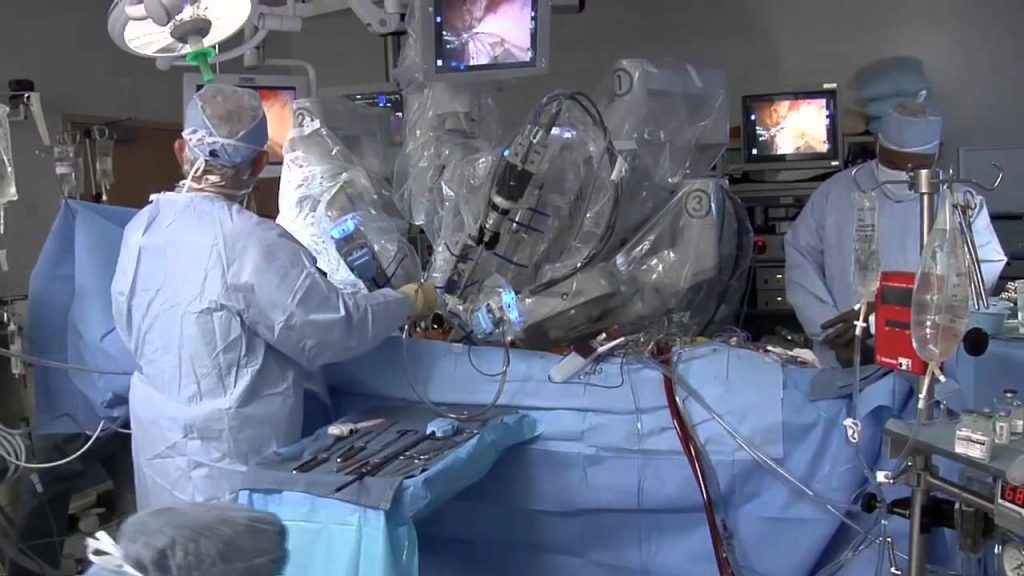
Pancreas Surgery: Management of Pancreatic Diseases through Surgery
When pancreatic diseases, such as pancreatic cancer or pancreatitis, necessitate surgical intervention, experienced surgeons employ cutting-edge techniques to optimize outcomes. Equipped with state-of-the-art facilities and a multidisciplinary approach, skilled surgeons provide exceptional care for patients requiring pancreas surgery. Understanding pancreatic diseases, their implications, and the surgical interventions available can empower you to take an active role in your treatment.
Small Intestine Surgery: Treatment Options for Intestinal Disorders
Small intestine surgery addresses a variety of conditions, such as Crohn’s disease, bowel obstructions, and small intestine tumors. Skilled general surgeons specialize in small intestine surgeries, employing advanced techniques to restore intestinal function and alleviate symptoms. Understanding the different intestinal disorders, their impact on daily life, and the available treatment options can help you navigate your treatment journey with confidence.
Spleen Surgery: Surgical Interventions for Splenic Conditions
Spleen surgery may be necessary for the treatment of various splenic conditions, such as ruptured spleen or enlarged spleen due to disease. Experienced surgeons possess extensive expertise in performing spleen surgeries, utilizing both traditional and minimally invasive approaches. Understanding splenic conditions, their implications, and the surgical interventions available can help you make informed decisions about your treatment and well-being.
Soft Tissue & Skin Surgery: Procedures for Lesions, Tumors, and Infections
In addition to internal surgeries, skilled surgeons also specialize in soft tissue and skin surgeries. They offer expert surgical interventions for skin lesions, tumors, and infections, ensuring optimal cosmetic and functional results. Trust experienced surgeons to provide personalized care and effective treatment for your soft tissue and skin conditions.
At Lenox Hill Minimally Invasive Surgery, we are dedicated to delivering the highest standard of care, utilizing advanced surgical techniques, and prioritizing patient well-being. If you’re seeking expert general surgical services in Manhattan, contact us today.
LENOX HILL MINIMALLY INVASIVE SURGERY
117 E 77th Street
Suite 1A
New York, NY 10075
646-846-1136
admin@lenoxmis.com
Visit our website for more information: https://lenoxhillminimallyinvasivesurgery.com/
General surgeons & Surgery
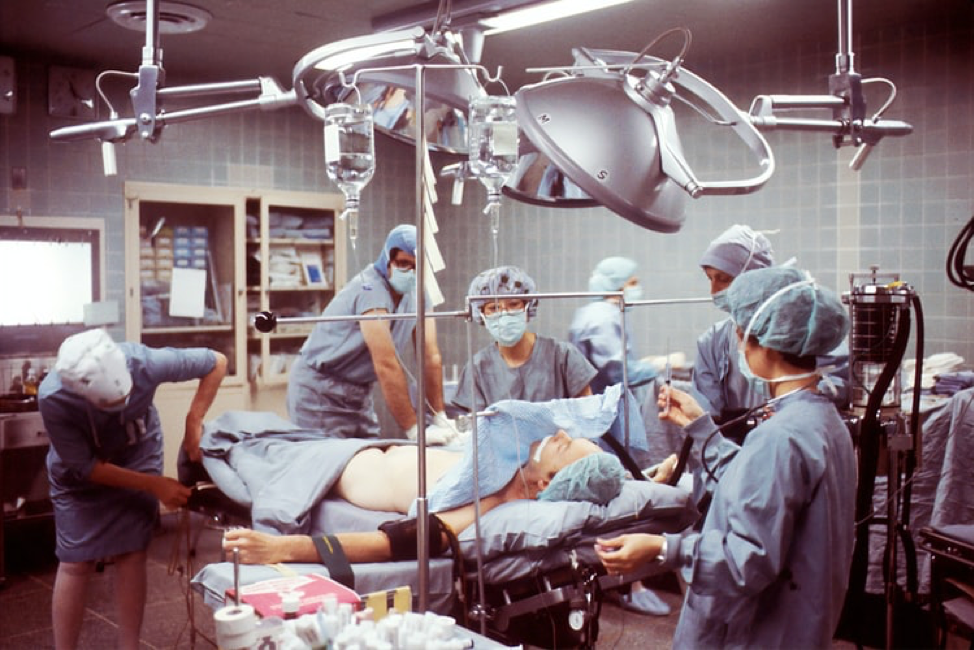
A general surgeon‘s responsibility is to care for the patients dealing with different conditions that usually require surgery. They don’t have any specialization or additional training, such as neurosurgery or heart surgery. But some general surgeons get advanced training in trauma surgery.
What General Surgeons Do?
The general surgeon performs a broad range of surgeries, including the abdomen, endocrine system glands, breasts, etc. Some of them are:
- Operatable surgeries of the gastrointestinal tract, which is a passage from the esophagus to the anus
- Breast diseases
- Liver, kidney, and pancreas transplantation
- Trauma to the thorax and abdomen
- Some skin conditions
- Initial assessment of people with a peripheral vascular condition
- General surgery of children
- Elective surgery
After gynecology, general surgery is the second major surgical specialty in America. It includes a wide range of surgical specialties that may lead to many sub-specialties.
Surgeons with respective subspecialty do other general work as well. The most common emergency problem that requires surgery is acute abdominal pain because the abdomen has many organs that can cause pain. Moreover, other common health problems that require surgery include hernias, gallstones, and appendicitis.
Standard Procedures of General surgeons
The general surgeons widely use the procedure of minimally invasive surgery or laparoscopic. This method is also popular in patients because it is less scarring, takes less time to recover, usually don’t have side effects, and gives improved outcomes.
Moreover, this procedure works best for patients who don’t have a severe problem. For example, general surgeons perform less severe colon operations using this procedure.

Almost every abdominal surgery can be carried out laparoscopically, including hernia repair. Some general surgeons also opt for a specialization in laparoscopic surgery.
Sub-Specialties Of Surgeons
A general surgeon has a broad range of sub-specialties and can perform the following surgeries:
- Breast surgery includes checking the breast cancer symptoms (biopsy), breast reconstructive surgery (lumpectomy), and breast cancer surgery (mastectomy or removal of one or both breasts)
- The lower gastrointestinal operation for the disease of the rectum, colon, and anal canal, and especially the bowel’s cancer
- Endocrine surgery includes thyroid and endocrine glands surgery.
- Upper gastrointestinal includes the surgery of the liver, stomach, esophagus, and pancreas, and also include weight loss surgery.
- Transplant surgery of kidney (renal), liver (hepatic), and pancreatic transplantation
Surgeons need special training for doing advanced trauma surgery (for trauma centers and military surgery) and for rural and remote surgery.
Where do they Work?
General surgeons must be present in A&E departments to perform emergency surgeries. In rural and remote parts of the country, general surgeons have high value and demand for their variety of skills.
As you learned, they also perform trauma surgery after accidents, although these operations are not so common nowadays because of the improved car safety technology. This job needs close collaboration with other specialist doctors and requires a holistic approach to treat the patient.
Highly specialized general surgeons are less in number. They only perform severe and complex operations within their respective sub-specialty, such as liver transplant surgery. Moreover, in the armed forces, the military surgeon is basically a general surgeon. Their major job is to treat trauma and emergency patients.
Bottom Line
A general surgeon is a highly qualified and experienced health professional who can perform various surgeries on different parts of the body. They operate the abdomen, esophagus, large intestines, small intestines, and other conditions. These surgeons treat diseases like appendicitis, hernias, esophagus cancer, and other severe health problems.
The surgeons perform operations that require experience and skills to manage and prevent the problems that may occur during the procedure. This is why you must always consult surgeons who have training in the specific disease or condition you have so that you will not face any complication and risk.
Lenox Hills Surgeons have an experienced team who perform surgeries using the most modern technological tools. If you are looking for the best general surgeons in NYC, you have come to the right place. Schedule an appointment for any general surgery today by visiting our website or calling us at 646-846-1136.















